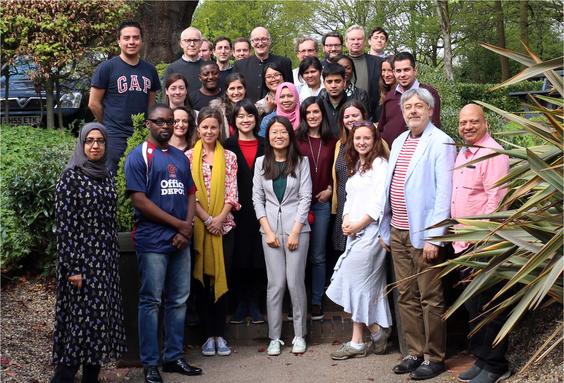IRDR Fellowships
The IRDR has had several research fellowship calls, all with the aim of strengthening our key research themes.

12 April 2018
IRDR Research Fellowships in Conflict, Migration and Disaster
The IRDR has conducted research under this theme in the Kashmir region and on the Rohingya exodus. In order to strengthen this research theme, we recruited two 1-year research fellowships to begin in January 2019.
IRDR Research Fellowship in Gender and Disaster
To coincide with the launch to the IRDR Centre for Gender and Disaster, we launched a 2-year fellowship in Gender and Disaster in April 2018. Dr Punam Yadav was appointed to this fellowship
IRDR Launch Fellowships
Soon after the launch of the IRDR, we launched an open fellowship call two 3-year fellowships, for excellent early-career researchers in any discipline in the field of risk and disaster reduction. The purpose was to produce excellent research with high impact, build capacity in the field and to signal our support and encouragement for early-career researchers from around the world to apply for prestigious fellowships to be held in the IRDR. The two fellows appointed in this call, in 2012, were Dr Mohammed Shamsudduha and Dr Ben Lishman.
Dr Mohammed Shamsudduha
Appointed in March 2012 to a 3-year IRDR Research Fellowship in the area of water risk. “Shams” holds a BSc and MSc in geology from Dhaka, MScs from Sydney and Auburn and a PhD in hydrogeology from UCL. Shams concurrently was funded by EPSRC for a KE fellowship on water risks in Bangladesh. His research will be included in the Earth Sciences REF Impact Case Study on water risks and has been featured in a Nature Climate Change paper he co-authored. Every year many water-related hazards such as flood, tropical cycle, and drought affect people’s lives, properties and environments throughout the world. Globally, more than 50% of these naturally occurring disasters are hydrological. Amongst the hydroclimatological hazards, prolonged drought conditions resulting from insufficient rainfall and inadequate renewal of groundwater through rain-fed recharge can lead to serious social and economic disasters. In addition to water scarcity, poor water quality due to chemical and pathogenic contamination can lead to serious public health hazard.
Dr Ben LIshman
Appointed in April 2012 to a 3-year IRDR Research Fellowship, in the area of Arctic engineering risks. Ben holds an MEng, an MPhil and a PhD from Cambridge University in engineering. He has worked at UCL and most recently has been a Research Associate at the Bristol Glaciological Centre. The Arctic sea-ice cover has thinned in thickness and geographical extent over the last twenty years, and it is projected to do so for the next twenty years. One effect is that the Arctic is more accessible, and heavy engineering – particularly for hydrocarbon production, mining and shipping – is increasing. This increase in economic activity has associated risks. The Arctic is a complex environment due to its remoteness, fragile ecosystems, the cold, the clash of local livelihoods with global capital, and the presence of sea ice. Sea ice both poses a hazard to offshore operations and shipping, and can act to transport and concentrate pollutants. Ben, working with Danny Feltham (Centre for Polar Observation and Modelling), will simulate sea ice floe interactions, in the laboratory and environmental ice tank, and model sea ice dynamics using discrete element models in order to assess safe ice loads on offshore structures.
 Close
Close

